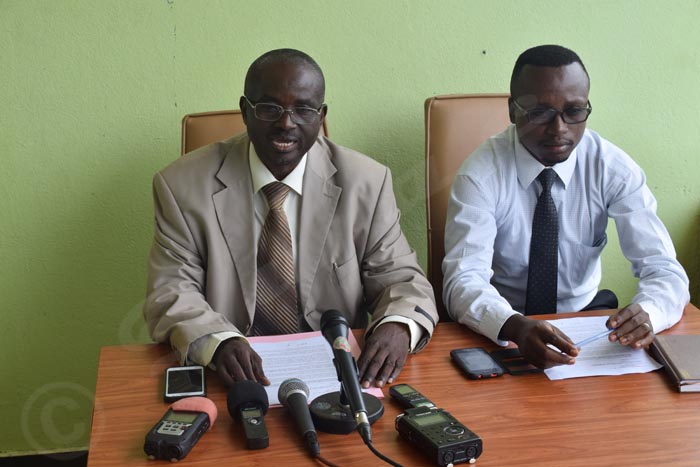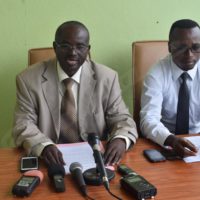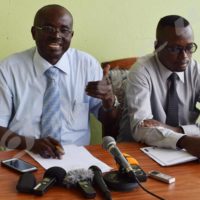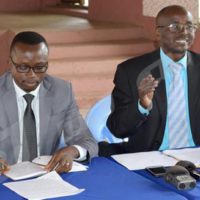
Hamza Venant Burikukiye and Jean Marie Nduwimana, respective chairmen of CAPES+ and PISC-Burundi
The non-profit organisations PISC-Burundi and CAPES+ have jointly recommended that the results of the work of Burundi Truth and Reconciliation Commission (CVR) be used to exclude people responsible for bloodshed in the country from politics in the future. The organisations asked the CVR to complete its work as soon as possible so that based on the results of the commission, actors in “the sad history of our nation be excluded from election campaigns for good”. The authors of serious crimes participate in elections in the hope that once they are elected they will enjoy immunity, the organisations said.
The CVR, whose ultimate goal is promoting forgiveness and reconciliation, has been criticized, especially by those opposed to the Burundi government, for not having a justice section. They argued that forgiveness alone would encourage impunity. Even Bishop Jean-Louis Nahimana, its president, said, “a CVR with no justice would be in vain”.
The recommendation that people identified by the CVR as having committed crimes would face some sort of justice is an issue that has been a point of contention between the UN and the Burundi government. The UN demanded for a justice section for the CVR, a proposition that the Burundi government did not agree with. The reasons of the refusal were that for example, since the CVR activities cover the period from the independence of Burundi in 1962 to 2008 when FNL, the last rebel group signed peace agreement with the government, it would be impossible to bring to justice authors of serious crimes since they are already dead or have fled the country.
But after the pressure by the UN, the government left it to the CVR to decide whether the justice section would be necessary according to the results of the commission’s activities. CAPES+ and PISC-Burundi have therefore done what only the CVR has the prerogative to do, and that at the wrong moment since the commission has not yet completed its work.
Hamza Venant Burikukiye, the president of CAPES+, believes that people with a dark past are unable to contribute to national development as leaders. “Can a person who has committed serious crimes serve us?” he said. “The population will have the opportunity to sanction those who have been involved in crimes that have devastated our country”, said Jean Marie Nduwimana, the chairman of the integrated platform PISC-Burundi. He explained that giving priority people is the basic principle of democracy.
Representatives of the two civil society groups made their recommendation after the national commission of the inter-Burundian dialogue (CDNI) completed its work in Burundi.
The organisations urged the government to create a commission to develop a proposal for the amendment of the Constitution, as was the wish that people expressed during the inter-Burundian dialogue sessions.
According to the groups, since the 2020 elections are approaching, laws regulating the election processes should be made known to people early on to allow potential candidates to prepare themselves. In addition, the knowledge and the understanding of actors and procedures of the election processes will help to prevent conflicts of the past from happening again.

















 IWACU Open Data
IWACU Open Data

